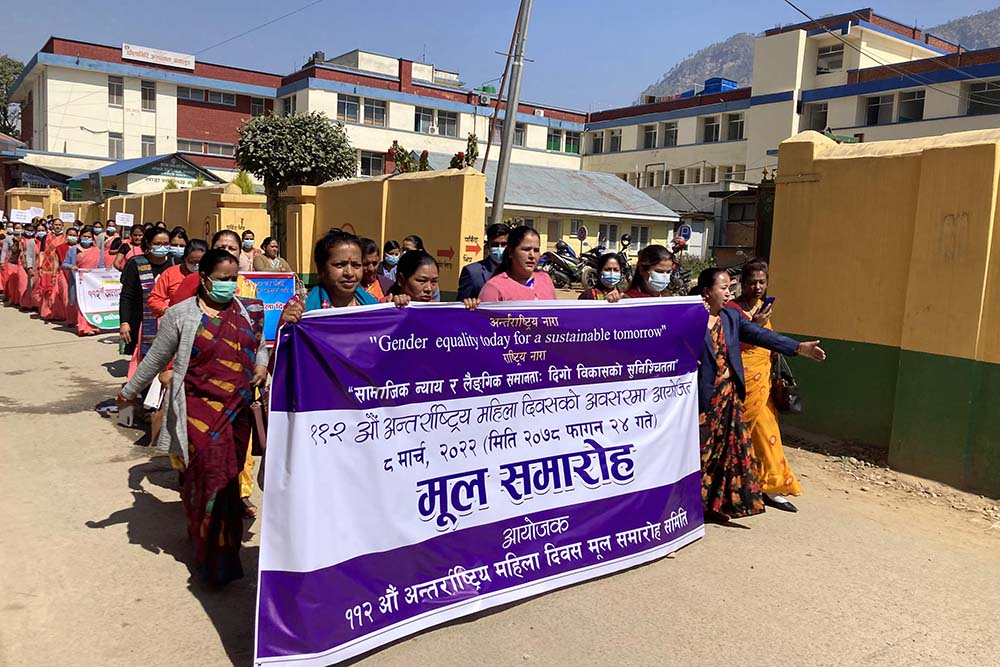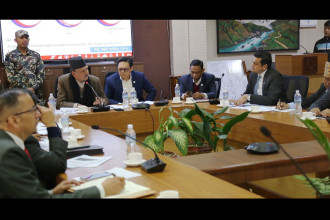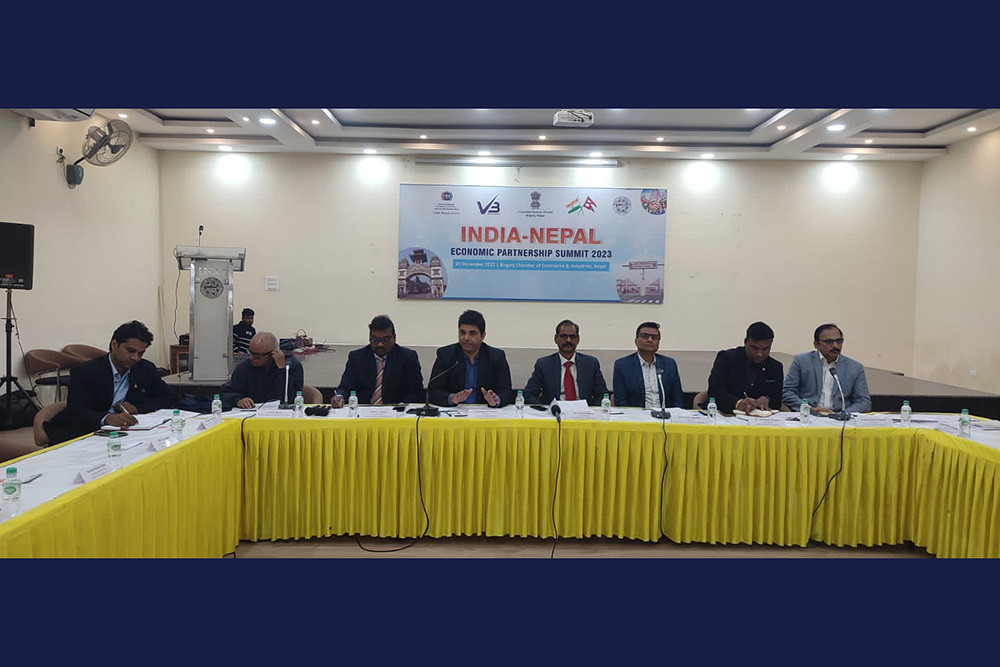
- Alarming assaults on women's rights around the world in 2021/22
- Legal protections dismantled, and women human rights defenders now at unprecedented risk
- Protection and promotion of women's and girls’ rights and support for women human rights defenders crucial, including for Covid-19 recovery
- Governments must act decisively to reverse regressions and uphold human rights for women and girls
Crisis in Ukraine This year International Women’s Day falls as armed conflict in Europe plunges the world into renewed crisis. Images of women giving birth while sheltering from airstrikes; of women fleeing the bombs - children in their arms; of grieving mothers; of newly orphaned children, underscore just what conflict and humanitarian crisis mean for women and children. The women and girls caught up in the conflict in Ukraine now join the ranks of millions more who have suffered the unrelenting human costs of armed conflict from Syria to Yemen and Afghanistan and far beyond. Increased militarisation of daily life, as weapons proliferate, violence escalates, and public resources are re-directed to support military expenditure - all exact a high and unsustainable price on the daily lives of women and girls. Today across Ukraine and the broader region, once again women and girls are at grave risk. Amnesty International has already documented how the last few years’ militarisation in conflict-affected eastern areas of Ukraine have led to increased rates of gender-based violence and reduced access to essential services. It is a pattern now set to spread across the country as a whole.
Massive restrictions on women’s and girls’ rights imposed in Afghanistan Since seizing Kabul in August 2021, the Taliban have imposed gross restrictions on the rights of women and girls across Afghanistan. Women have been told they cannot return to their workplace or travel in public unless accompanied by a male guardian. Girls over the age of twelve are now barred from education. An albeit imperfect system, painstakingly negotiated, to enhance protection for women from gender-based violence has been decimated. Lawyers, judges, shelter workers and others who worked for years to enable that system to operate effectively are now at risk of attack themselves. “The Tailiban’s laws, policies and practices have worked to unravel the human rights gains that the people of Afghanistan struggled for over decades. Despite brave protestations by women across the country, the Taliban remain bent on constituting a society in which women are rendered second class citizens. Restricted in movement, deprived of education, denied opportunities for work and income, and left without protection from gender-based violence? That is unconscionable. It brings only shame to all who are responsible and to all who are silent about it too,” said Agnès Callamard. “Governments around the world must put the rights of women and girls at the very centre of their foreign policy for Afghanistan. They must take their lead from Afghan women’s rights defenders, and insist, for example, on women’s and girls’ equal access to education, to employment and to essential services, without discrimination.”
Gender-based violence in Ethiopia Gender-based violence has been a persistent feature of the armed conflicts that have continued and expanded over the past twelve months. In Ethiopia, Amnesty International has reported on widespread acts of sexual violence perpetrated in the Tigray region by Ethiopian and Eritrean forces, and in the Amhara region by Tigrayan forces. These attacks constitute war crimes and may have amounted to crimes against humanity. Many of the attacks documented by Amnesty International - such as gang rape - were committed by multiple perpetrators in front of family members. In some cases, those attacked involved acts of sexual mutilation, or were accompanied by ethnic slurs and threats.
Legal protections dismantled The past twelve months have also seen significant damage to the international human rights legal framework that exists to combat gender-based violence. On 1 July 2021, Turkey withdrew from the landmark Istanbul Convention – a groundbreaking and comprehensive framework for combatting gender-based violence and ensuring the rights of survivors in Europe. The decision marks a massive regression for women’s and girls’ human rights in Turkey and has also emboldened anti-rights advocates across several other countries in the region. Sexual and reproductive rights have also come under fire. In the United States there has been an all-out attack on abortion rights, with state governments introducing more abortion restrictions in 2021 than in any other year. In Texas, a near-total ban was enacted and subsequently permitted to go into effect by the Supreme Court, criminalizing abortion as early as six weeks into pregnancy - before most women even realise they are pregnant. This ban denies millions the right to access safe and legal abortion. The future of the constitutional protection to a safe and legal abortion across the country is also at grave risk as it comes before the Supreme Court in June 2022. Such attacks on legal protections for the rights of women and girls are particularly devastating in the context of the Covid-19 pandemic, which has seen a steep increase in incidences of gender-based violence and further attacks on sexual and reproductive rights reported across the world.
Women human rights defenders driving resistance, positive change Amid these setbacks, still the tireless efforts of women human rights defenders have paid off. Human rights advocacy, campaigning and mobilisation led to key victories for abortion rights in Colombia, Mexico and San Marino. And while Turkey pulled out of the Istanbul Convention, two other states, Moldova and Liechtenstein, have ratified it. Women’s rights activists in Slovenia successfully pushed for reforms to bring the country’s rape law in line with international standards, following similar positive developments in Denmark, Malta, Croatia, Greece, Iceland and Sweden, while reforms are underway in the Netherlands, Spain and Switzerland. Women activists and human rights defenders have also been on the frontlines of resistance and protest for human rights in many other countries, including Ukraine, Poland, Belarus, Russia, USA and Afghanistan. In many cases, they have done so even in the face of threats on their lives and to their families or threats of imprisonment and actual bodily harm. They deserve global support. “Governments know well what is needed to uphold the human rights of women and girls. Those who support them, including donors and investors, must insist that the relevant authorities act now and decisively - regressive laws must be repealed. Essential services must be provided. Girls and women must have equal access to education and employment. Gender-based violence must be condemned and protections from it be strengthened, not weakened. Targeting of women human rights defenders must cease. No society can afford or should ever tolerate such erosions of dignity for more than half its population. There can be no excuses for failing to govern justly and fairly for women and girls,” said Agnès Callamard. READ ALSO:
Published Date: March 8, 2022, 12:00 am
Post Comment
E-Magazine
RELATED B360 National





